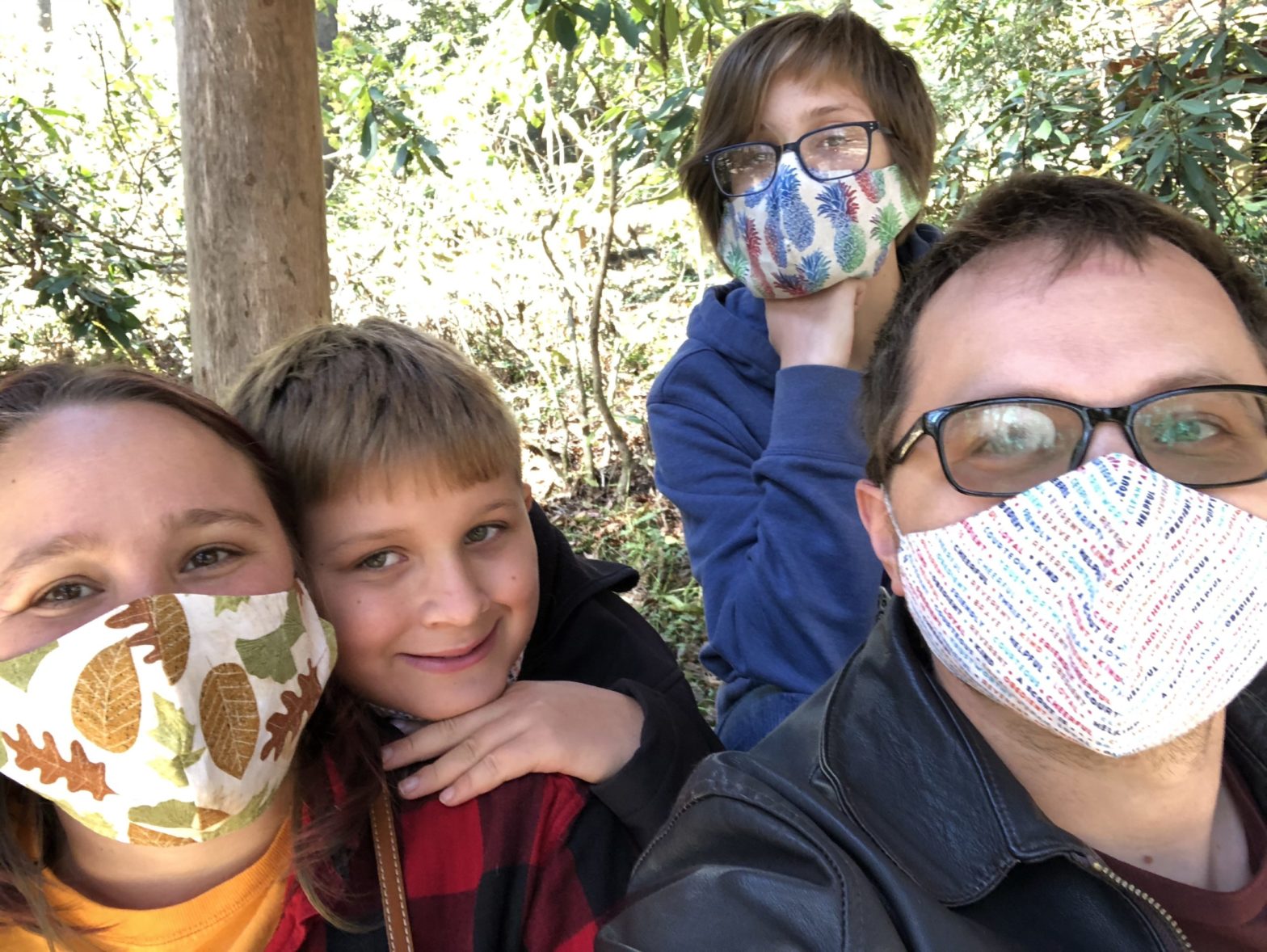On Saturday we took the kids to the Native American history museum in Cherokee, North Carolina. Nestled amid the Appalachian mountains in western North Carolina, Cherokee holds a special, perhaps even unique, distinction among Native American territories within the bounds of the United States: It is not a reservation.

Pay no attention to the large weathered wood and white lettered sign that greets the visitor as you cross a bridge into town. According to several displays in the museum and an interpreter at the living history village, the Eastern Band of Cherokee were never granted a reservation by the American government. Rather, when the Indian Removal Act was passed and most of the Cherokee were forced to move west, the people who were to become the Eastern Band refused to go. Rather than fighting or complying, they disappeared into the hills and hid from the soldiers until the danger had mostly passed. Afterward, they gathered their money and gave it to William Holland Thomas, a white man who had been adopted into the tribe. He used the money to purchase a large tract of land in what is now Cherokee, NC and then the hiding Indians emerged. Years later, when the community was well established and the American government was more amenable to negotiating with native peoples, the Eastern Band negotiated with Washington and had their land placed in a perpetual trust, ensuring that it could only be bought and sold among members of the tribe and the federal government recognized the land and its people as a sovergn nation.
I got the distinct impression that the people of Cherokee, or the Qualla Boundary, are rather proud that their ancestors not only managed to evade the American soldiers, but that they chose their home and bought it for themselves. That they were able to remain on their own land and share it with their descendants.
That’s a pride that I admire.

I have long wanted to have a place where I could put down roots. My parents left their family home in New Jersey long before I was born and for the next fifteen years migrated between various points in New Jersey, Tennessee, Massachusetts, Maine, and Virginia. They moved for good reasons, mostly following my dad’s postings in the Coast Guard, and they worked hard to give my sister and me a good life, but the one thing that they could never ensure was that we would have a solid place to put down roots and stay.
We finally stopped moving almost twenty years ago in south-east Virginia, but despite the friends and memories I have made there it has never felt like home. Too flat. Too many hurricanes. Too miserably wet in the winter and unbearably humid in the summer.
I find myself now on a perpetual adventure. This RV is the closest thing I have to my own home and, between helping family members, avoiding areas of high COVID risk, and preparing to explore the country I find myself utterly detached from physical roots. I have home bases; friends and family who generously allow me to park in their driveway or give me a place to store my crates of books in their garage. This flat-roofed, creaky, cozy, and occasionally cantankerous house on wheels is a home that I have come to love.
But I know that one day I will need to find a place to put down roots. I need land, preferably several acres. I need a place where I can do my pottery and work on projects. Where I can improve my house in full hope that I will spend the rest of my life in that place which has become my final home. I have tentative plans and offers from multiple friends and family, some of which are likely to bear fruit and proceed beyond the realm of idle dreams.
Until then, I am content to travel and see and write.
